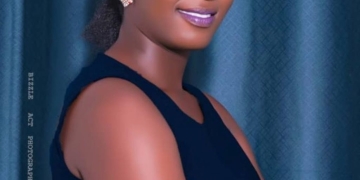
KAMPALA – If Uganda’s opposition were a cocktail, it would be shaken, not stirred — and garnished with a dash of drama. The latest twist in the opposition’s political script comes from the Forum for Democratic Change (FDC), where no fewer than six party heavyweights, including President Patrick Oboi Amuriat and Secretary General Nathan Nandala Mafabi, have picked up nomination forms to contest for the party’s presidential flag ahead of the 2026 General Elections.
For the ordinary Ugandan, it feels like watching a family wedding where all the uncles suddenly want to marry the bride. But Patrick Amuriat has come forward to sprinkle some ice water on the heated speculation, assuring the nation that this is democracy, not disaster.
In Uganda’s political jungle, where opposition parties often appear like warring cousins at a village meeting, the FDC’s internal race is both a breath of fresh air and a whiff of tension. Will this turn into healthy competition or a soap opera with season finales of betrayal, tears, and walkouts? Only time will tell.
Analytically, the FDC’s show of democracy could signal political maturity. In a country where many opposition outfits are dominated by “life presidents,” the idea that top honchos are willing to battle it out at the ballot within their own ranks is refreshing. Yet, analogically, it’s like six chefs in one kitchen, all insisting their recipe will save a starving nation. What happens when the soup spills?
Comically, Ugandans on the street are already making bets: “Will Nandala accept defeat if he loses? Will Amuriat wear his signature barefoot campaign style into the internal race?” On Twitter and in the bustling taxi parks, some joke that the FDC’s nomination queue looked longer than the line at a sugar shop after a price drop.
Sensationally, this internal contest is sending ripples through an opposition already bruised by splits and personality clashes. With Bobi Wine’s National Unity Platform (NUP) on one side, and a crowded field of smaller parties jostling for attention, the FDC’s internal wrestling match could either crown a champion who unites the opposition — or shatter the party into political confetti.
Amuriat’s reassurance that the party remains united will be tested in the coming months. Political watchers know that in Uganda, opposition unity is often a thin sheet stretched over deep cracks. As the clock ticks toward 2026, voters will be watching whether the FDC emerges stronger from this contest or adds yet another chapter to Uganda’s long-running soap opera of a divided opposition.
In the end, democracy is messy — and sometimes, it’s also hilarious. For now, grab your popcorn: Uganda’s political stage is alive with intrigue, ambition, and the hope that maybe, just maybe, the opposition cocktail won’t leave voters with a headache the morning after.
The Author Odeke Bazel is a Researcher, Political Commentator, and Social Worker.

















